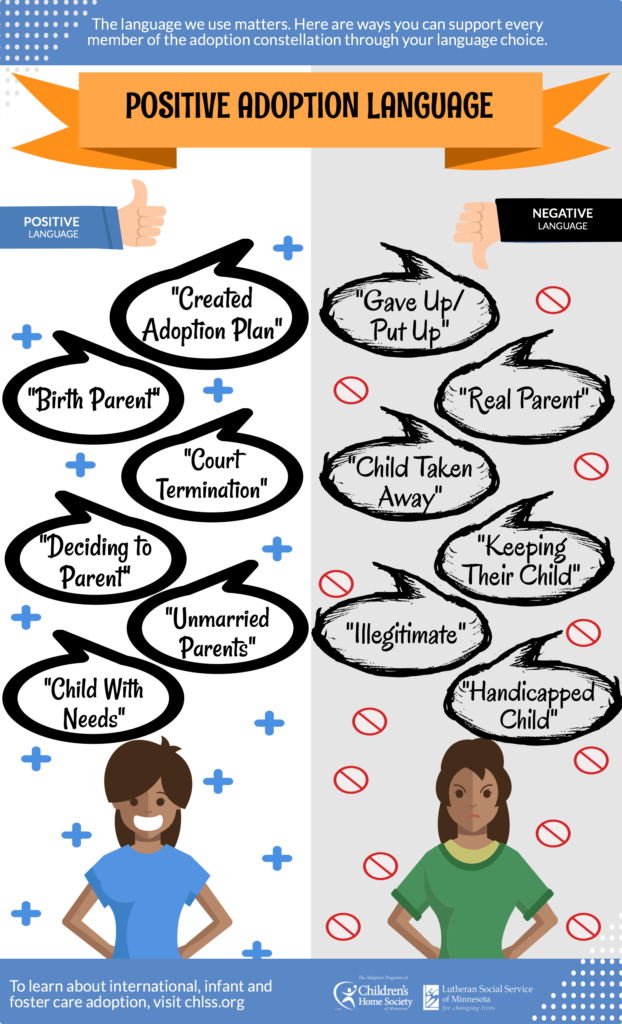Adoption language has evolved drastically over the decades. The importance of positive adoption language has grown to convey respect for birth parents, adoptees and adoptive parents. Some adoption terms that were once commonplace, unfortunately, shed adoption in a negative light or fail to respect all members of the adoption constellation.
Words are a powerful way of portraying our thoughts. The way we talk, in particular the words that we choose when talking about adoption, says a lot about what we think and value. When we use positive adoption language—as someone who made the choice for adoption or as a family member/friend who has been touched by adoption—we are being conscientious of the fact that many people are personally touched by adoption and each of their experiences is unique.

Using positive adoption language in our personal lives helps others become aware of the power that negative adoption language can have, even if it’s not meant in a negative way. Consider how negative language can affect people who were adopted, who have chosen adoption for their children, or have adopted as a way to grow their family. Then also consider how positive adoption language would better support their stories and their lives—while also eliminating some of society’s inaccurate impressions about adoption and stopping the spread of misconceptions. Using positive adoption language educates others about adoption so that someday those terms are commonplace.


